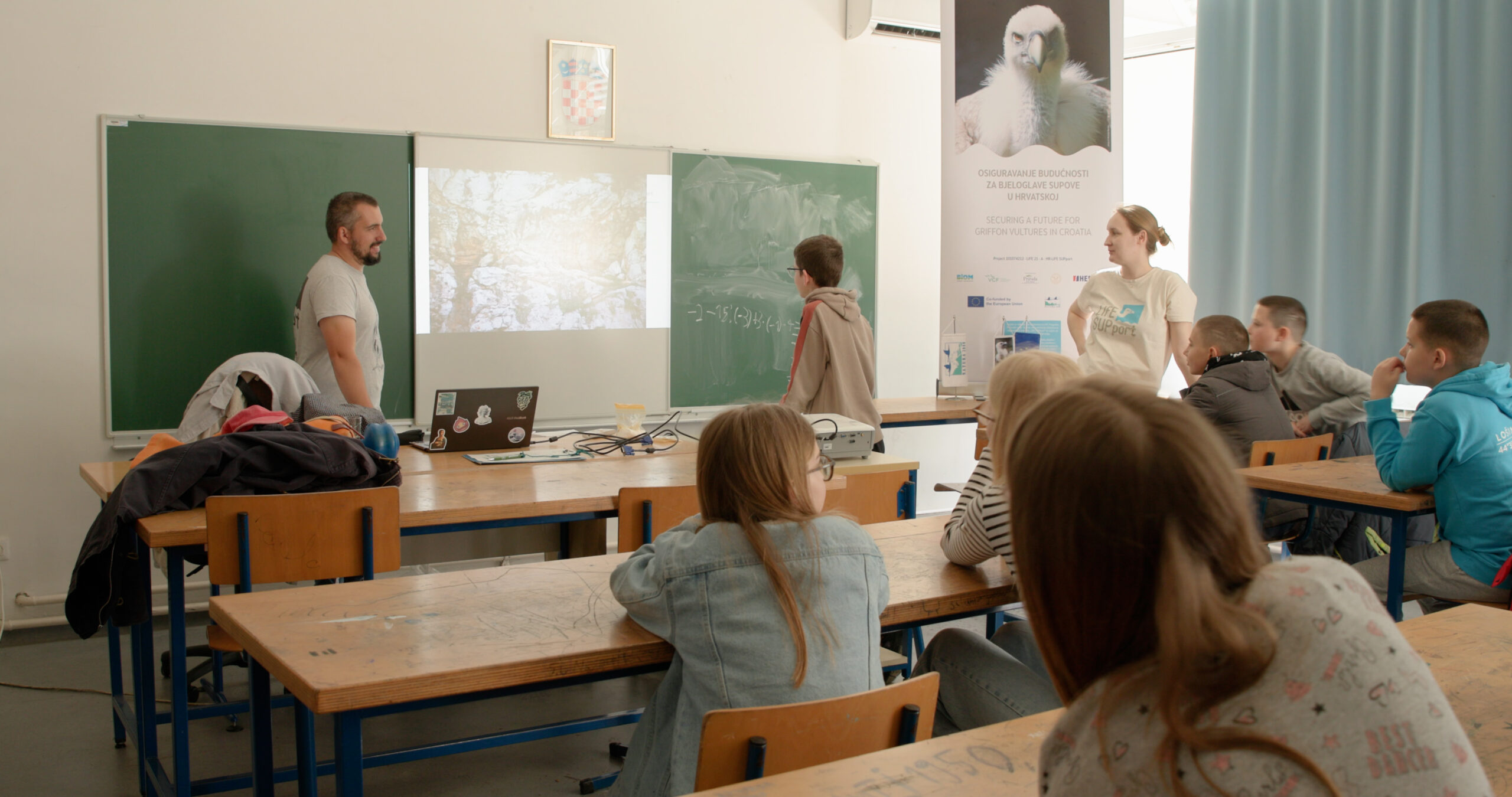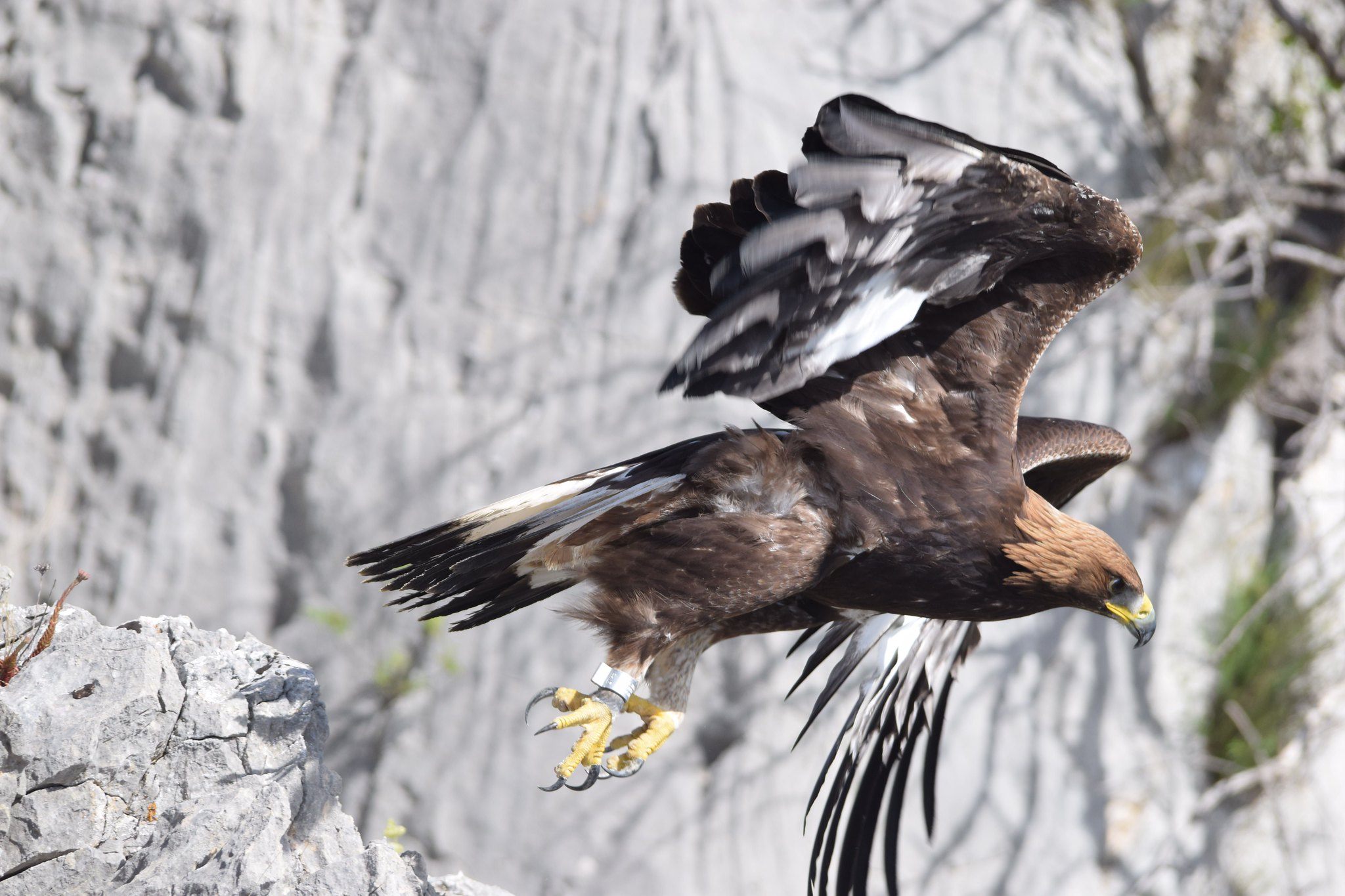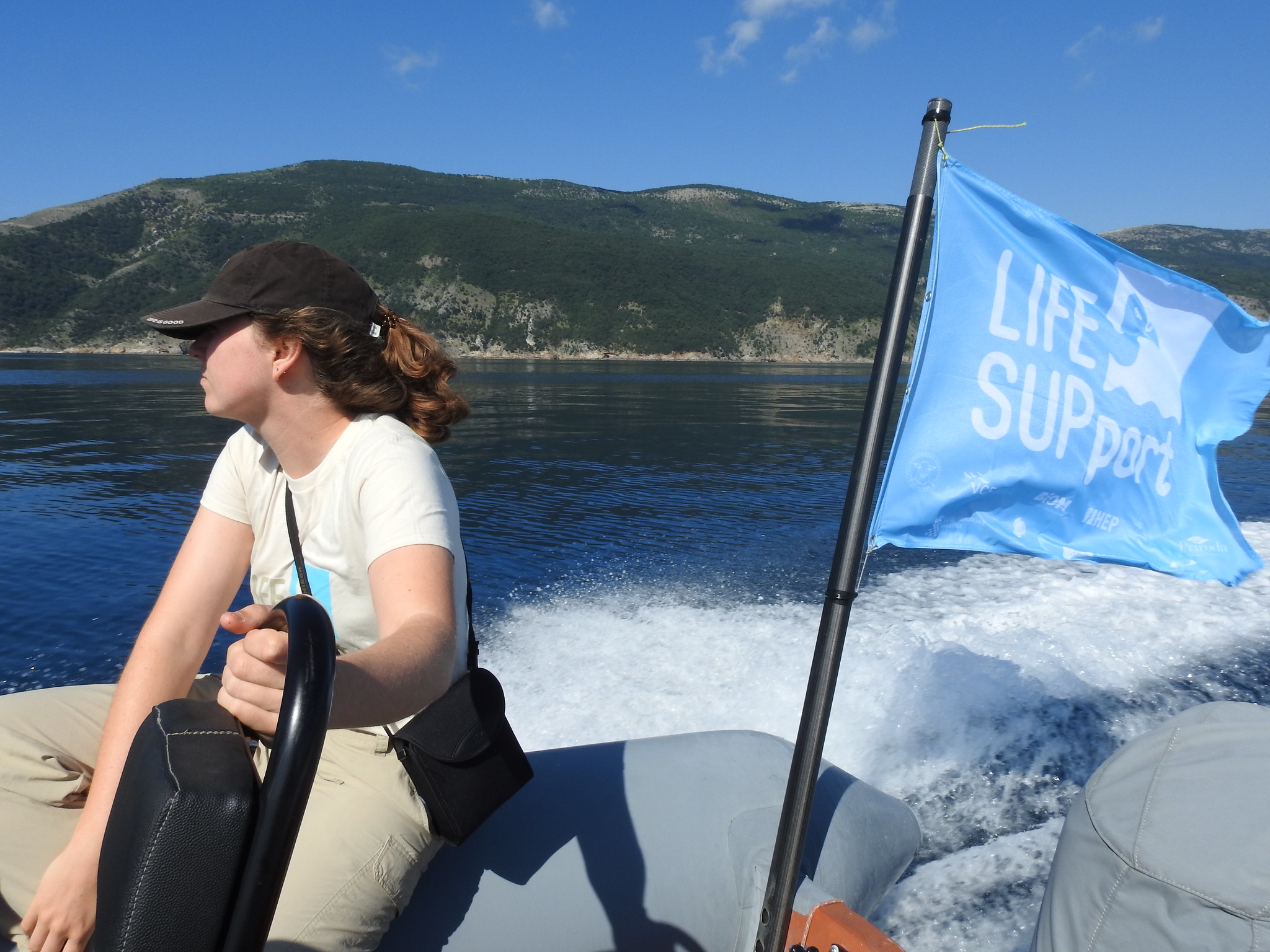World Wetlands Day is marked at the beginning of February each year to point out their importance in the ecosystem and importance of their conservation
The term wetland encapsulates various habitats such as reedbeds, flooded grasslands and forests, marine habitats, lakes, fishponds, rivers and embankments, as well as ponds. Still, wetlands are not only picturesque areas of nature but their roles; like regulation of the water cycle, water filtration, habitat for numerous species – are key in preserving biodiversity.
The importance and general conservation of wetlands, especially as bird habitats, was recognised more than half a century ago when an international convention on wetlands was signed (Ramsar Convention) which provides the framework for national work, and international cooperation for conservation and responsible use of these areas and their resources, the convention was signed by 171 countries to date, and 2414 wetland habitats have been designated as areas of international importance. There are 5 Ramsar sites in Croatia – Kopački Rit nature park, Lonjsko polje nature park, Crna Mlaka Fishponds, Vransko lake, and Neretva River Delta, they add up to an area of 93.590 ha.
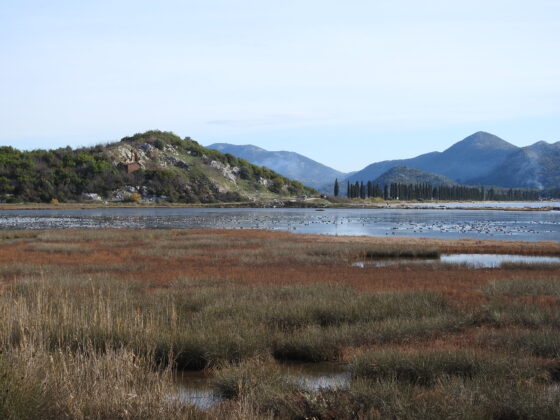
Over the last few years, even these habitats, as well as the species that live in them, have not been rid of numerous threats, whether it’s urbanisation, climate change, water pollution, or abandonment of traditional land management techniques. The ecosystems most at threat are disappearing at a rate 3 times faster than forests. In the past these were even considered undesirable areas due to mosquito presence, so they were dryed out and used for agriculture. For example in Brijuni isles wetlands were dried out to prevent malaria and make the islands habitable.
Ponds as small wetland habitats
Ponds are small, and practically only, water surfaces in dry karst, and are by far the most numerous wet habitats in those rocky areas. In addition to being rich with animal and plant life they are important to people and their life in karst regions. Ponds were formed naturally, filled from freshwater sources, or they were created by people that used the natural configuration of their surrounding terrain. They are open, accessible, and relatively shallow. Water is kept in the pond by the clay lining, but often people would add additional walls and strengthen the outside of the pond, primarily to prevent cattle from entering the water directly or to stop mud from blocking the pond.
For centuries these places kept balance in nature, watered many herds and wild species, but today they are abandoned and forgotten. The consequence of that is the loos of biodiversity due to the impact these small ecosystems have on species such as amphibians, and water insects, as well as species using them as a drinking water source.
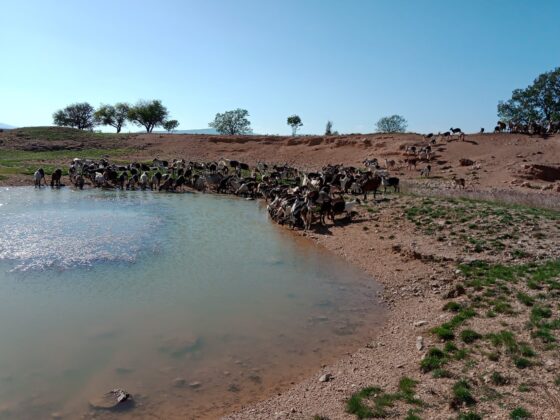
To the importance of ponds as well as wells speaks the fact that in Učka nature park there are 40 recorded bodies of water, 8 in North Velebit National Park, 213 in Biokovo nature park, and a staggering 207 in our youngest nature park – Dinara. These are the numbers of currently known ponds and wells in these 4 project areas, but their true number must be even higher, as they were key elements of animal husbandry infrastructure. Without them [ponds], transhumance and cattle grazing on mountains like Dinara and Biokovo would not be possible as these mountains are as porous as a sponge with no permanent sources of freshwater. On Učka the situations is slightly more favourable as there are some occasional streams and sources of water, but they are situated randomly form one another, on Velebit the situation is similar to that on Dinara and Biokovo.
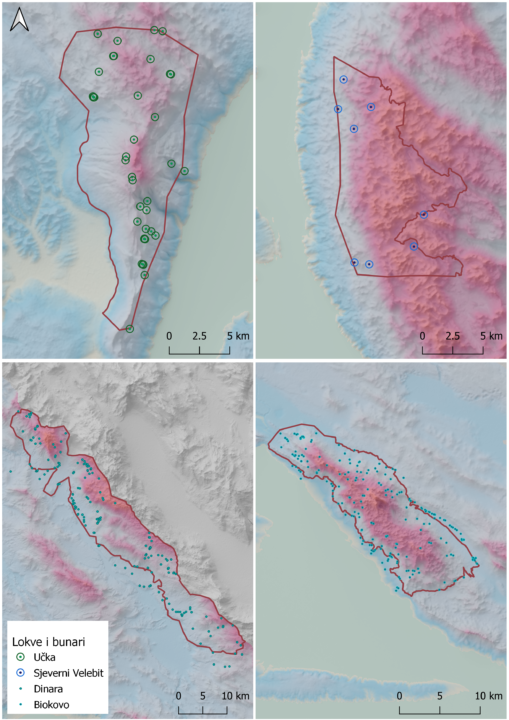
Once upon a time these ponds were maintained by locals to ensure a source of water for their animals and farming needs. While plain at first sight these ponds are hotspots of plant and animal life, while the pond Rovozna in Učka nature park is also an important resting spot for many bird species. Since 2006 this pond has been the location of a traditional ornithological ringing camp.
Let’s restore the ponds!
Two years ago
Still water revival project started, the goal is to restore freshwater ecosystems on Croatian karst mountains; Biokovo, Dinara, north Velebit, and Učka, as well as to support the conservation of biodiversity and human activities in these areas. In Dinara area several bodes of water have been successfully restored already, and this year similar activities are starting in other protected project areas as well. We look forward to seeing how these restored ponds serve their purpose and the support received from the local population, that will often join us in this work to help conserve these priceless natural and cultural heritage, that has been slowly sinking into oblivion.
Therefore, we encourage you to start your own initiative to restore ponds or wells in your area. Ideas and techniques on how to restore these mini-ecosystems can be found on
Restoration of wells and ponds in a traditional way, so you can do it in a way that will have a positive effect on nature, many species, as well as us humans.
Translated into English by Nika Vuletić Over the last few years, even these habitats, as well as the species that live in them, have not been rid of numerous threats, whether it’s urbanisation, climate change, water pollution, or abandonment of traditional land management techniques. The ecosystems most at threat are disappearing at a rate 3 times faster than forests. In the past these were even considered undesirable areas due to mosquito presence, so they were dryed out and used for agriculture. For example in Brijuni isles wetlands were dried out to prevent malaria and make the islands habitable.
Over the last few years, even these habitats, as well as the species that live in them, have not been rid of numerous threats, whether it’s urbanisation, climate change, water pollution, or abandonment of traditional land management techniques. The ecosystems most at threat are disappearing at a rate 3 times faster than forests. In the past these were even considered undesirable areas due to mosquito presence, so they were dryed out and used for agriculture. For example in Brijuni isles wetlands were dried out to prevent malaria and make the islands habitable.
 To the importance of ponds as well as wells speaks the fact that in Učka nature park there are 40 recorded bodies of water, 8 in North Velebit National Park, 213 in Biokovo nature park, and a staggering 207 in our youngest nature park – Dinara. These are the numbers of currently known ponds and wells in these 4 project areas, but their true number must be even higher, as they were key elements of animal husbandry infrastructure. Without them [ponds], transhumance and cattle grazing on mountains like Dinara and Biokovo would not be possible as these mountains are as porous as a sponge with no permanent sources of freshwater. On Učka the situations is slightly more favourable as there are some occasional streams and sources of water, but they are situated randomly form one another, on Velebit the situation is similar to that on Dinara and Biokovo.
To the importance of ponds as well as wells speaks the fact that in Učka nature park there are 40 recorded bodies of water, 8 in North Velebit National Park, 213 in Biokovo nature park, and a staggering 207 in our youngest nature park – Dinara. These are the numbers of currently known ponds and wells in these 4 project areas, but their true number must be even higher, as they were key elements of animal husbandry infrastructure. Without them [ponds], transhumance and cattle grazing on mountains like Dinara and Biokovo would not be possible as these mountains are as porous as a sponge with no permanent sources of freshwater. On Učka the situations is slightly more favourable as there are some occasional streams and sources of water, but they are situated randomly form one another, on Velebit the situation is similar to that on Dinara and Biokovo.
 Once upon a time these ponds were maintained by locals to ensure a source of water for their animals and farming needs. While plain at first sight these ponds are hotspots of plant and animal life, while the pond Rovozna in Učka nature park is also an important resting spot for many bird species. Since 2006 this pond has been the location of a traditional ornithological ringing camp.
Once upon a time these ponds were maintained by locals to ensure a source of water for their animals and farming needs. While plain at first sight these ponds are hotspots of plant and animal life, while the pond Rovozna in Učka nature park is also an important resting spot for many bird species. Since 2006 this pond has been the location of a traditional ornithological ringing camp.




